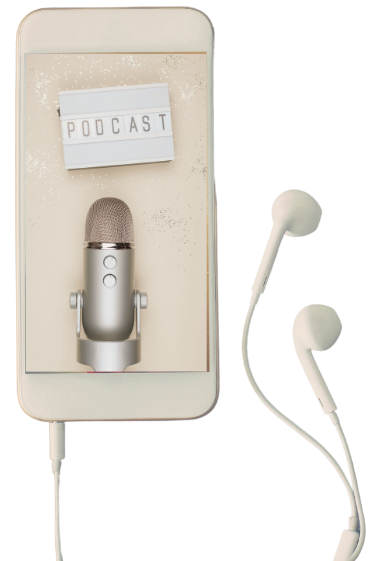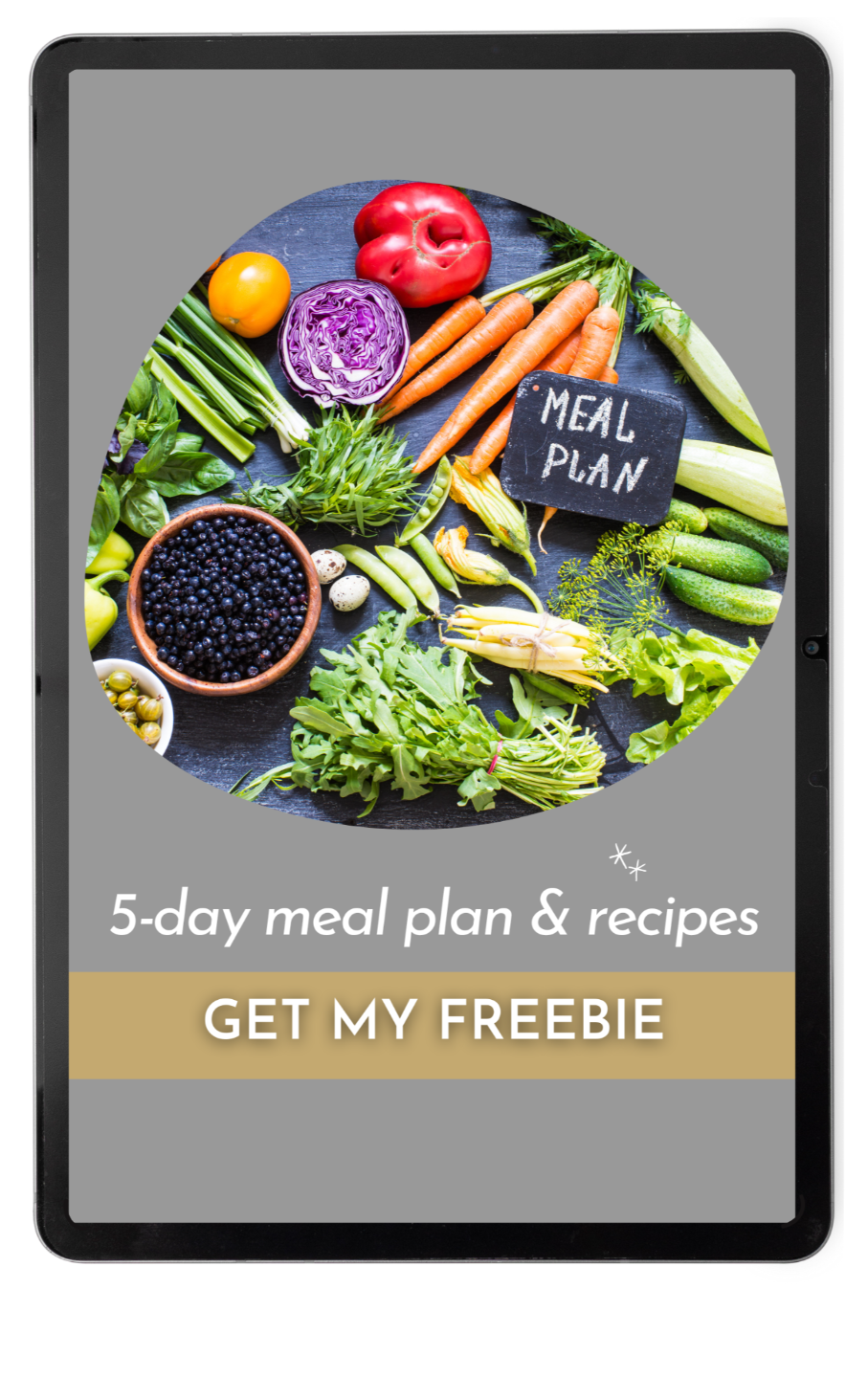Ep 10: Why Calorie Counting Doesn't Work, and What to Do Instead
Have you ever carefully tracked every single calorie, staying under your daily limit and still not seeing the scale move? Or maybe you're following the same food plan as a friend who's just dropping weight while you've hardly even seen 500g go down? Or maybe you've noticed that the diet that worked wonders in your 20s now seems completely ineffective in your 40s.
Well, here's the truth that diet companies, and probably a lot of app producers don't want you to know: your body is not a simple calculator. It's not just about calories in versus calories out like we've been told for decades. Our bodies are more like a sophisticated chemistry lab, constantly analyzing and responding to the types of foods that you eat, not just how much.
There's a far more effective way to look at calories and change calories when weight loss is your goal. And that's what I'm going to talk about in today's episode.
Introduction
Welcome to the Why Weight podcast. I'm your host, Cheryl Takayama, qualified nutritionist, emotional eater and weight loss coach who walks the talk. I've maintained my 30 kilo weight loss for the past 23 years following a low carb plan, and now I coach other women online so they can do the same.
It's my mission to help women get off this crazy diet wheel and find a way of eating and a way of thinking that works, so you too can lose your weight for life. Join me each week for lots of practical advice, tips and motivation, so you can start now.
The Problem with Calorie Counting
So today's episode is a biggie. This is a topic that I talk about virtually every single day in my office, especially when I've got new clients, because so many people who come to see me are coming because they're doing a calorie deficit. They're counting everything. And guess what? It doesn't work.
This is why I really want to take the time today to tell you why it doesn't work. And most importantly, share with you what does work. Now, once again, this is not something that I've read in the science books. You're not going to get a whole lecture from me today about the theories of calories in versus calories out with all of the evidence fighting for and against this argument. No, I don't have time for that. I just want to help you with practical solutions.
And these solutions come from my evidence of working as a weight loss coach for 13 years. So what I'm sharing with you are the ways that I have used personally in order to lose those couple of kilos that might creep back. But most importantly, it's how I have helped all of my clients break through these stubborn plateaus to take the things that they've been doing that haven't been working, and make some really simple tweaks to get things going again. That's what today is all about.
So what is the problem with calorie counting? I mean, there's so many people out there, especially on social media, who say over and over again, "Look, you just have to be in a calorie deficit. Here's my calculator. Work out what you need, follow those calories, and then you're going to lose weight."
But I'm here to tell you today that this idea of a constant calorie deficit simply does not work for everyone. If you're feeling frustrated because you're doing a calorie deficit and it's not working, you are not alone. As I said in the beginning, this is probably one of the biggest reasons that sends women to come and see me. They are doing a calorie deficit. They've worked it out on their app. They're tracking. They're measuring everything, counting every single gram. And it might start working in the beginning, but then it stops.
Now, if your weight loss plateaus and you're doing a calorie deficit, and all of a sudden the scales haven't moved for a few weeks, where do you go from there? Do you just start eating less and less? I mean, it's definitely not sustainable, especially if you want to have energy to do anything in your life. You can't just keep eating less. This is one of the huge negative things about trying to lose weight using a constant calorie deficit.
The Stress Factor
And the truth is that this constant calorie deficit is really stressful. This is why it's a problem for fat burning, especially if you're over the age of 35, because stress is not our friend as we age, especially when it comes to fat burning.
When we get into our late 30s and beyond, the stress that our body could probably handle a lot better when we were younger all of a sudden starts to change as our hormones change. This is why so many people find it really difficult to burn fat as they get older. It's because of stress.
You know, as we get to this phase of life, our metabolism is not going to be as efficient as it was when we were younger. But life's a bit more stressful, isn't it? We've got families, kids, parents, jobs, mortgages. And then we hit perimenopause. Now, look, even if you're a man, you're not going to be immune from this stress at this stage of life, especially if you have a significant other in your life. Plus, men's hormones change as well. So let's face it, this older phase of life is very different from when we are in our 20s.
Now, if you are in a constant calorie deficit and it's stressing your system out, your inner cavewoman is not going to be happy. Remember, our body's top priority is survival. Your body's job is to keep you alive in the best way possible.
So your inner cavewoman who wants to keep you alive, she's not going to be very happy if there's a very low stream of energy and calories always coming in, because she's going to be thinking, "What's happening out there in the world? Is there stress because there's not enough food? Because I'm certainly not getting enough calories."
Now, we may know that the stress is because of our job or because of something else that's going on. But from your body's perspective, when your body feels that stress, it's far more primal. And if your inner cavewoman thinks that there is a shortage of food, well, she is going to shut up the shop. She's going to slow your fat burning engine right down, turn your metabolism down so that your body can preserve energy because your survival could be at risk.
Now, this is the problem: your body does not want to let go of fat if it thinks your survival is at risk. Fat is our precious energy source that's going to be keeping us alive. Your body's going to start holding on to it.
Now we get in a really horrible battle with ourselves where we're already eating less, your body's holding on for dear life, and the great fight starts. This is a really difficult way to lose weight. It's not going to feel like a harmonious journey. And dare I say it, it is definitely not going to work in the long term. Because if you've really stressed your body into burning fat, the minute you start eating again and give your body some extra calories, your inner cavewoman is going to gobble that up and turn it back into fat as fast as possible.
How many times have people lost weight and then said to me, "Well, I lost ten kilos in two months and I gained nearly all of it back in six weeks"? You know, I'm sure if you've done any diets in the past, you've experienced just how fast we can get that weight back if we're not careful. And a big part of this is due to stress.
A Better Approach: Being Smart About Calories
So what we want to do when we're on a weight loss journey, we need to be smart about calories, not just eat less because it's too stressful. The real power comes from knowing where your calories come from. This is the magic because it's all about hormones, and knowing that calories are not equal is so important.
So 100 calories of broccoli is going to be completely different from 100 calories of chicken, which is protein. And that's going to be completely different, again, from 100 calories of fat in the form of avocado or some butter.
As I've talked about in previous episodes, all of these foods are completely different in terms of how your body is going to burn them. How your body is going to extract energy from them. So when we know that, doesn't it make sense that how you're going to structure your plate depends on what your goal is?
And if your goal is to burn fat, the primary action we need to do is not just drop calories of everything. We need to reduce calories of the high energy foods, right? And what are they? Carbohydrates.
So it's definitely not just about eating less, exercising more. It's about eating less high energy foods. And when you start doing that, it makes a huge difference in terms of lowering your stress level, because you're not just constantly in this deficit where your body feels like there's not enough food. You're getting beautiful protein. You're getting beautiful fats that are keeping you satiated. So you're not hungry.
So yes, step one is about knowing the calories you need based on your goal and then adjusting your plate to meet that need. Step two is about adjusting your calories when you need to along the way in your weight loss journey, because there might be points where you're stuck on a little plateau so you could drop your calories a little bit for a short term and see if that helps. But we only want to do that for a very short time. Not this idea of consistently keeping calories low.
Caloric Variability: The Solution
So in contrast to this idea of constantly low calories, which is very stressful to your body, I want to talk to you today about what I call caloric variability, which means we start mixing things up. Now this works really, really well. This is how I get my clients to break through their plateaus on the scales when things slow down. And I add the strategy into all of my programs as well, because it's the absolute key to getting ongoing, consistent results.
And the great thing is that it really minimizes stress, because it gives you a consistent thing to add into your program each week, but you're only going to do the stressful stuff in short bursts. So it brings variability into your eating. So yes, you might do one low calorie day, but then the next day you're going to increase your calories back to your foundation plan or your base level. Then you might go a few more days and then you do it low again. So what this does is it keeps your body guessing what's coming next. And that is really powerful.
The Driving Analogy
So I like to think of weight loss and fat burning like driving. I think this analogy explains it really well. When you first start out, especially if you've been eating really badly, it's probably like you're driving in reverse and then you get a plan and you get started. So that's you getting into first gear. First gear is a great place to be because you're on the road. You're seeing momentum.
Now, when you have a bit of time and space and energy, that's when you can move it up a gear. You might try a couple of days of ketogenic eating, which is keeping your carbs really, really low. Or you might start experimenting with a bit of intermittent fasting, but rather than doing these more aggressive or slightly more stressful strategies for a long time, just do them for a short burst and then come back to base. So move your engine up to fourth gear and then come back.
What I find in weight loss is because everyone wants fast results, they want to do the aggressive thing straight away and they want to stay there. "I'm going to do the carnivore plan and I'm going to eat no carbs and I'm going to eat low calories, and then I'm going to get my weight loss as fast as possible." Well, that's like taking your car that's probably in reverse and slamming it into fifth gear and then going for it without a break. Your engine is going to blow up. That is not going to work in the long term.
So what I like to do is have people in first or second gear, then we might move to fifth gear when we have a bit of time and energy, we don't have a really busy schedule. We put our car in fifth gear and do something a little bit more restrictive, but then we come back, we give our engine a break, we come out of the fast lane and come back to first gear. Now that works really, really well.
And what this does is it gives your body a little bit of a shock. It helps stimulate your metabolism, but it does it in a way that's not so stressful, because you might do that for a day or two. Then you come back to your happy place. Your inner cavewoman knows that food is plentiful. You can calm down a bit. Your nervous system can relax. You're in this happy place. And then just when your body's getting happy again, you might do that little shock.
So this idea of caloric variability is really powerful because it's not as difficult to do. It's definitely not as stressful. And when you do it consistently, it really helps you get consistent results. I find it's particularly effective for people who have a slow metabolism, who really struggle to lose weight, because we really do need to push ourselves to this level. The old doing the same thing is just going to keep getting you the same result. So adding in these shake up days is really effective and you can do it in different ways.
You can change what you eat. So going from higher carb to lower carb, you can change how much you eat, which is going by calories. And it's also really powerful to start experimenting with when you eat.
Next Steps
I want to break it down and give you some more specific examples in my episode next week, so make sure you subscribe so you don't miss out. And in the meantime, if you're stuck in a calorie deficit, it's not working, and you want a plan that's just going to help give you some ideas, grab my free five day shake up plan. I'll put the link to this plan in the show notes.
So this plan will give you some new ideas. It's got some strategies in there that you can add in which you're going to start getting your metabolism going.
Summary
So to summarize the main points from today: Calorie counting and a constant calorie deficit is not an effective solution for long term sustained weight loss, especially once you hit over 35 because it's simply too stressful. What does really work is caloric variability—shaking it up, mixing things so your body isn't as stressed, but it's still getting that stimulation to really help get your metabolism going. That's what it's all about here. Doing things smarter. Definitely not harder.
And let's finish today with one tip that you can do to get started now. I want you to decide what fourth gear looks like for you and give it a go, even if just for a day. You might decide to reduce your meals so that you're dropping your calories. See how that goes? Or cut out any carbs you might be having and do a really, really low carb day like under 20g or less. Something like a strict keto plan. Just do it for a day and see how it works for you. And if it works and you enjoy it, you can always try it again. And before you know it, you're going to be seeing some great results.
I hope what I've shared today is going to help you in your journey, and I look forward to sharing even more ideas with you next week. Thanks so much for listening. And if you want support on your weight loss journey, I would love to help. You'll see the links in the show notes for my socials, as well as my fab freebie, a five day low carb meal plan, and five delicious dinner recipes. You'll also see the link for my four week Foundations of Fat Loss program. This is the program I've designed specifically for the fat burning needs of women over 35. Remember, the only thing that's going to stop you reaching your goal is if you quit. Never, ever give up.









